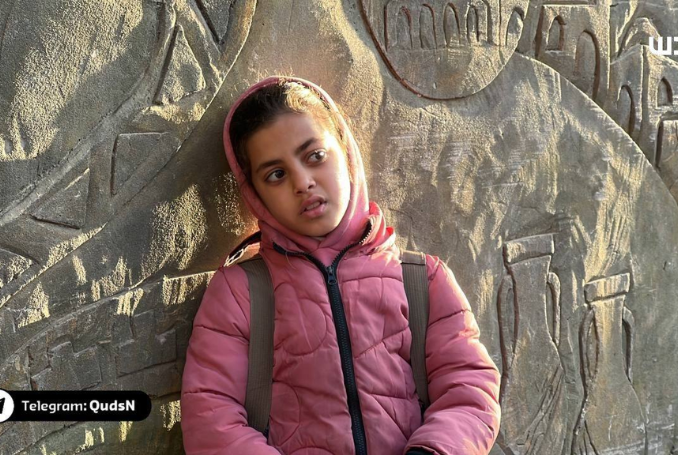
The Israeli army has withdrawn from the Rafah crossing, allowing medical evacuations of 50 patients daily to Egypt, as part of the ceasefire agreement that took effect on January 19.
The Israeli army has withdrawn from the Rafah border crossing between Gaza and Egypt with medical evacuations of 50 patients per day set to begin on Saturday.
The withdrawal on Friday was in accordance with the terms of the ceasefire agreement, which went into effect on January 19.
Al-Jazeera correspondent Rami Abu Taima reported that buses will transport 50 cancer and heart patients to the crossing, from where they will continue into Egyptian territory.
Abu Taima added that the exit procedures for the first batch of patients were organized at the Nasser Medical Complex in Khan Yunis, southern Gaza. He noted that some companions of the patients were not approved to accompany them.
Fifty Palestinian children, ill and injured, are preparing to travel abroad for treatment after a nine-month Israeli siege. pic.twitter.com/T1Cb0Y7mGe
— The Palestine Chronicle (@PalestineChron) February 1, 2025
According to Israeli Army Radio, the army handed over the crossing to an international force from the European Union (EU) ahead of its opening.
The Israeli army has however redeployed its forces in an area along the Gaza-Egypt border “in the Philadelphia axis area,” the radio’s correspondent reported, citing an Israeli security source.
After the ceasefire agreement, the first group of patients from the Gaza Strip is preparing to travel through the Rafah crossing shortly. pic.twitter.com/7Y8kPFd83b
— Osama Abu Rabee أسامة أبوربيع (@dn_osama_rabee) February 1, 2025
Besides the EU mission, the report noted, there are Palestinians “who are not Hamas members, and Egyptian workers.”
The Shin Bet, the Israeli domestic intelligence agency, has approved all the workers at the crossing, according to the report.
“Officially, the Palestinian Authority’s involvement is only in stamping the crossing permits,” it said.
200 Per Day
Closed since May 2024 when Israel’s ground offensive began in the south, the Rafah crossing is a vital route for humanitarian aid into Gaza.
According to the report, 50 wounded Palestinians will be allowed to pass through the crossing every day along with three escorts to each injured, totaling 200 people every day.
All exits (the wounded and their escorts) are subject to prior assessment by the Shin Bet and approval by Egypt, the report stated.
The Rafah crossing, the only channel linking Egypt with the #Gaza Strip, is open and will start receiving patients from Gaza, Governor of Egypt’s North Sinai Governorate Khaled Megawer said on Friday. https://t.co/1MtcFpUeWH pic.twitter.com/rAba5mkI7r
— China Daily (@ChinaDaily) February 1, 2025
“The Shin Bet determines who is authorized to pass and who is not, and also forwards the list for Egyptian approval. After the Egyptians approve, the list is forwarded to the workers inside the crossing,” it added.
WHO Welcomes Announcement
The World Health Organization (WHO) welcomed the announcement of the medical evacuations to begin on Saturday.
“This will be the first medical evacuation since the ceasefire began, and the first time through Rafah since its closure in May 2024,” said Tedros Ghebreyesus, the WHO’s Director-General on X.
.@WHO welcomes the announcement that 50 patients will be medically evacuated from #Gaza via the Rafah crossing tomorrow.
This will be the first medical evacuation since the ceasefire began, and the first time through Rafah since its closure in May 2024.
Still, from 12,000 to…
— Tedros Adhanom Ghebreyesus (@DrTedros) January 31, 2025
“Still, from 12,000 to 14,000 people still require urgent specialised medical care outside Gaza. We continue to call for the scaling up of medical evacuations through all possible routes,” he added.
EU ‘Here to Help’
Resuming its mission at the crossing, the EU welcomed the re-opening.
“Europe is here to help: the EU’s civilian border mission deploys today to the Rafah Crossing at the request of the Palestinians and the Israelis,” EU foreign policy chief Kaja Kallas said on X.
EU Resumes Rafah Mission as Egyptians Protest Trump’s Gaza Displacement Plan
The mission “will support Palestinian border personnel and allow the transfer of individuals out of Gaza, including those who need medical care,” Kallas added.
Gaza’s Health Ministry also confirmed that the first batch of patients will leave the enclave on Saturday.
2,500 Children Require Care
On Thursday, UN Secretary-General Antonio Guterres called for the immediate evacuation of 2,500 children from Gaza who urgently need medical care.
His appeal followed a meeting with US doctors who warned that the children were “at imminent risk of death in the next few weeks.”
2,500 Children at Risk: UN Chief Demands Urgent Medical Evacuations from Gaza
“There’s about 2,500 children who are at imminent risk of death in the next few weeks. Some are dying right now. Some will die tomorrow. Some will die the next day,” Dr Feroze Sidhwa, a California trauma surgeon, told reporters following the meeting with Guterres.
He was one of the four doctors who met with Guterres. They had all volunteered in Gaza during Israel’s 15-month-long genocidal assault on the enclave.
(PC, Anadolu)
